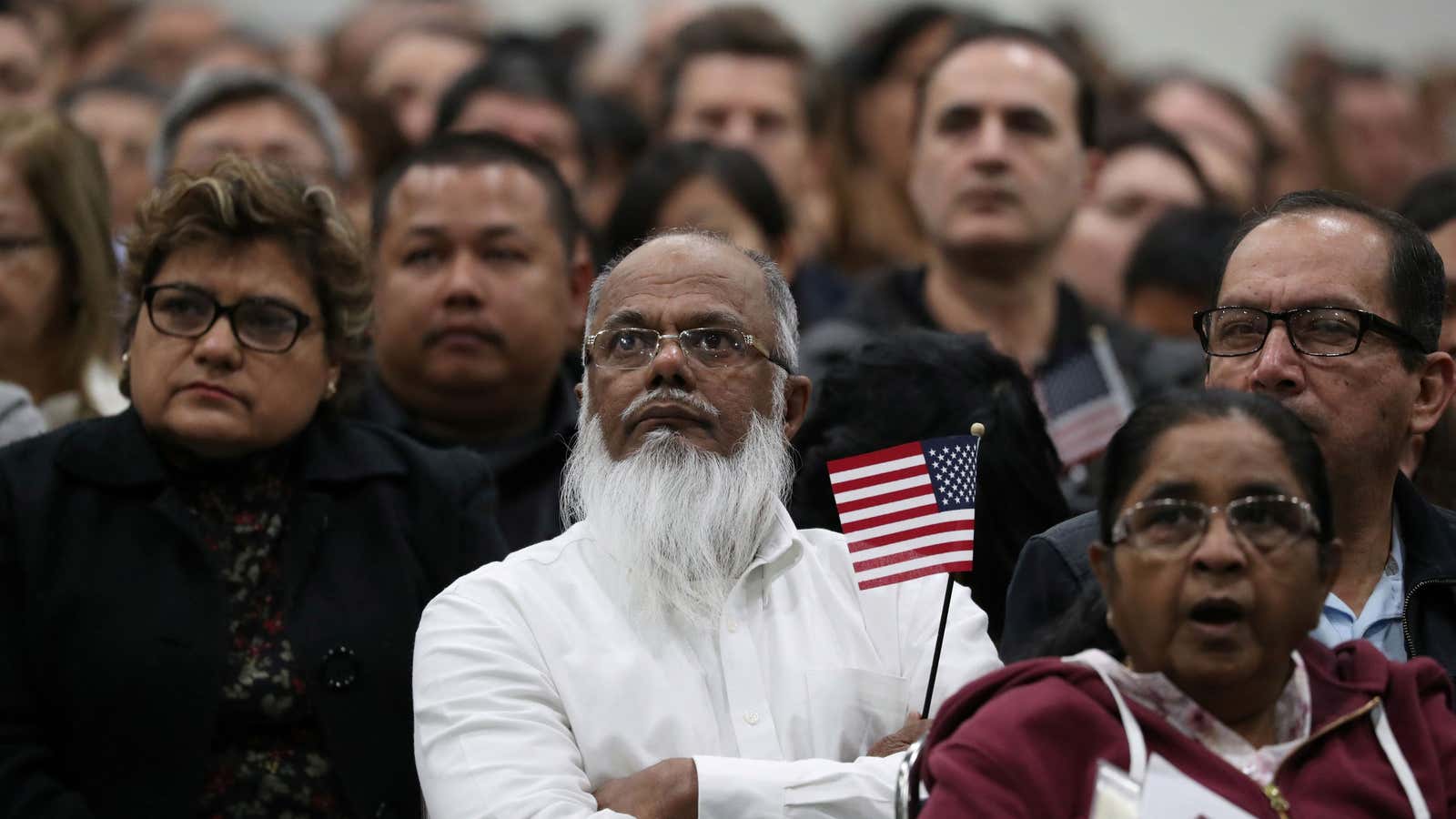Democrats and civil-rights groups are lambasting the decision by US Commerce secretary Wilbur Ross to include a question about citizenship in the 2020 US Census.
Critics are calling the move, which was announced late Monday, a political ploy that undermines the rigorous process used by the Census Bureau to count the entire US population every 10 years.
The addition does appear to be last-minute by Census standards—reviews of new questions can last years and involve thorough tests. The alleged political motivations, however, fit into the long tradition of political jockeying over what goes into the census questionnaire.
The methods used in the decennial count may be scientifically-based, but the purpose of the census is actually political. The final tally is used to assign the number of US House representatives each state sends to Washington and to distribute federal funds.
In that sense, the Ross-induced controversy is business as usual. “Every decade, whatever the political issues of the time are, there will be controversies on whether to ask a question and how to ask it,” says Margo Anderson, a history professor at University of Wisconsin, Milwaukee, and author of The American Census: A Social History.
A reflection of the immigration debate
The latest flap reflects the ongoing fight over immigration policy. Ross says getting an accurate citizen count by Census tract—which is an area about the size of a neighborhood—is necessary to ensure all minority voters get a chance to go to the polls, as mandated by the Voting Rights Act of 1965. (It’s an argument that is weakened by the fact that attorney general Jeff Sessions, who recommended that the citizenship question be included, has publicly called the Voting Rights Act “intrusive.”)
Ross’s opponents say the Trump administration’s real goal is to scare immigrants and minorities in Democratic strongholds away from participating in the census out fear that the government will use their information to deport them or their families. That would result in an undercount of the population in those areas, and reduce the number of US representatives they get to send to Congress.
“The fact that this is being raised at all is already creating some fear that all of us will need to work to undo,” said John Yang, president of civil-rights group Asian Americans Advancing Justice, in a conference call with reporters.
His group, along with others, are vowing to fight the inclusion of the citizenship question. The state of California, which has the largest population of undocumented immigrants in the country, already filed a lawsuit against the decision.
The citizenship fight
It’s a replay of a fight that has been going on for decades. The Federation for American Immigration Reform—a group that advocates for reduced immigration—along with several federal elected officials, filed lawsuits ahead of both the 1980 and 1990 counts demanding that the US stop including undocumented immigrants. Both cases were thrown out by courts.
Two US senators tried to achieve the same goal through law before the 2010 census; they failed too.
Although proponents of singling out undocumented immigrants have gotten farther this time around, their efforts could still be derailed by courts before 2020.
The power of official statistics
There have also been battles around who gets identified in the Census and how. Being part of an official category gives minorities more visibility, but their efforts have been often met with resistance.
LGTB advocates have been fighting for a question about sexual orientation in the Census questionnaire; their demands were rejected for the 2020 Census. People of Middle Eastern and North African descent, who were asking for their own check box too, were also snubbed by the Trump administration.
African Americans, however, were successful in 2013 in their push to get the Census to drop the term “negro,” which they considered offensive. It had been in the questionnaire since 1900.
Private data
Sometimes the controversy is about going unnoticed. In 1940s, there was a big brouhaha about questions on income. At the time, the Franklin Roosevelt administration wanted to get a better sense of Americans’ economic status to inform his policies. But wealthier people balked at disclosing how much they made. Back then, census takers collected answers in person, door-by-door.
The back-and-forth over the questions took on a nasty tone. A US senator accused Roosevelt of deploying “tactics used by Hitler in gaining powers never sanctioned by the people.” Roosevelt, in turn, called efforts to block the question an “obviously political move.”
In the end, the Census lumped higher incomes in a single category of $5,000 or more, and offered respondents the opportunity to report their earnings via a sealed enveloped delivered by mail.
